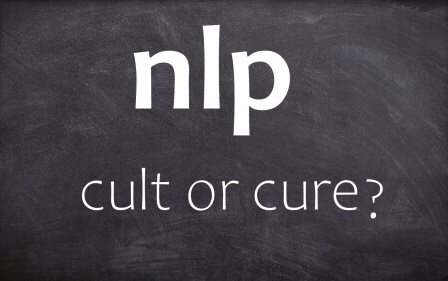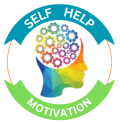Is NLP A Cult? If you’ve ever heard of Neuro Linguistic Programming (NLP), then you may be surprised to learn that it is sometimes referred to as a cult.
So, what is NLP and does it really deserve such a dubious reputation?
Table of Contents

Hi, Ian here and welcome to this article.
NLP is a set of communication and personal development tools that help people understand and influence their thoughts, behaviours, and emotions.
It’s based on the idea that our thoughts, language, and body language shape our experiences.
By becoming more aware of these patterns, we can make conscious choices to change our lives for the better.
Now, let’s address the elephant in the room: is NLP a cult? Well, the answer isn’t as straightforward as you might think. On the one hand, NLP doesn’t fit the classic definition of a cult. There’s no charismatic leader, no rigid hierarchy, and no pressure to conform to a specific belief system.
On the other hand, there have been instances where NLP has been used in a manipulative or cult-like way. Some individuals have used NLP techniques to control or exploit others, and some NLP training programs have been criticized for their high fees and questionable promises.
So, where does the truth lie? The truth is, that NLP can be a powerful tool for personal growth and development. It can help you improve your communication skills, boost your confidence, and achieve your goals. However, it’s important to approach NLP with a critical eye and to be aware of potential pitfalls.
If you’re considering exploring NLP, do your research and choose a reputable training program. Seek out a certified NLP practitioner who has a good reputation and ethical practices. And most importantly, trust your gut. If something feels off, don’t hesitate to walk away.
Remember, NLP is a tool, not a magic wand. It’s up to you to use it responsibly and ethically. With the right approach, NLP can be a valuable asset in your personal and professional life.
Is NLP a Cult? There is no simple answer to this question as there is significant debate surrounding the topic. Some people believe that NLP is a cult while others assert that it is not. There are a few things to consider when trying to determine whether NLP qualifies as a cult.
First, it is important to understand what constitutes a cult.
Generally, cults are characterized by their closed systems of belief and authoritarian structures. People who join cults typically surrender their power to the group’s leader and may be subjected to abusive and manipulative tactics in order to maintain compliance.
Additionally, cults often claim exclusive insight into spiritual or metaphysical truths and use this to manipulate and control their members. In addition, cults typically foster a sense of isolation from the outside world in order to maintain tight control over their members. This can be very harmful and destructive and can lead to tremendous psychological damage.
NLP does not make any claims about spiritual truths and instead focuses on pragmatic techniques that can be used to achieve specific goals. As such, NLP cannot accurately be described as a cult.
The History Of NLP And Its Controversial Beginnings
NLP is a relatively young field of study, compared to others in the counseling and psychotherapy domain. Developed in the 1970s, NLP has enjoyed a fairly rapid rise in popularity, but it has not been without its share of controversy. Here, we will take a closer look at the history of NLP and its controversial beginnings.
NLP was created in the 1970s by Richard Bandler and John Grinder. Bandler and Grinder were both linguistics students, and they wondered if it was possible to model the successful therapists of the time to replicate their results.
The early days of NLP were marked by controversy and lawsuits, as Bandler and Grinder were accused of stealing techniques from other therapists. However, they eventually won all of the lawsuits, and NLP continued to grow in popularity.
NLP is now used by therapists all over the world and has been credited with helping people overcome a variety of issues including phobias, addiction, anxiety, and depression. The NLP Practitioner Course is the first of a two-stage NLP learning path that provides an internationally recognized professional qualification.
The Criticisms Of NLP
NLP has been both widely praised and criticized over the years. Some people find the concepts behind it fascinating, while others see it as nothing more than pseudoscience. What are the criticisms leveled against NLP and are these criticisms justified or unjustified?
The criticisms of NLP usually fall into one of three categories: that the techniques are ineffective, that the techniques are dangerous, or that the techniques are manipulative.
Many people argue that NLP techniques are ineffective because there is no scientific evidence to support their claims.
However, proponents of NLP claim that the effectiveness of these techniques is not rooted in scientific evidence but in the observed results of using them.
NLP is a powerful tool that can help people to change their thoughts and behaviors. However, it is important to note that NLP is not a silver bullet and that it requires effort and practice to be effective. In other words, the proof is in the pudding – if you try out these techniques and they work for you, then that’s all the proof you need.
Others argue that the techniques are dangerous because they can be used to manipulate people’s thoughts and emotions.
Nonetheless, it is important to note that not all practitioners of NLP use these techniques in an unethical way.
In conclusion, it is up to each individual to decide whether or not they believe that NLP is a valid approach.
What Is NLP And How Does It Work
Neuro Linguistic Programming, commonly known as NLP, is a popular personal development approach that has been gaining popularity in recent years. NLP is based on the idea that our thoughts, feelings, and behaviors are all interconnected and that we can change our patterns of thinking and behavior to achieve our goals.
At its core, NLP involves techniques and strategies designed to help individuals improve their communication skills, overcome limiting beliefs and negative emotions, and achieve their desired outcomes. NLP draws on various disciplines including linguistics, psychology, and neuroscience to understand how the human mind works and how we can optimize our thought processes.
So, how does NLP work? In a nutshell, NLP aims to reprogram the way we think and communicate with ourselves and others. This is achieved through a variety of techniques such as visualization, reframing, and anchoring. These techniques help individuals to change their beliefs and thought patterns and replace negative self-talk with positive affirmations.
NLP also emphasizes the importance of body language and non-verbal communication, as these can greatly influence our thoughts and emotions. By becoming aware of our body language and learning to read the signals of others, we can better understand and communicate with those around us.
Overall, NLP is a powerful tool for personal growth and development. By harnessing the power of our minds, we can achieve our goals and live happier, more fulfilling lives.

The Benefits Of NLP And How It Can Help You Achieve Your Goals
Have you ever wondered if there was a way to improve your life through the power of communication? Neuro Linguistic Programming (NLP) is a technique that has helped many thousands of people to do just that. NLP is an approach to communication and personal development that aims to understand how people organize their thoughts and behaviors.
By learning about the way different parts of the brain work together, you can use NLP techniques to change your thinking patterns and achieve your goals. So, what are the benefits of NLP? Here, we will explore some of the key benefits of NLP and how it can help you achieve success in all areas of your life. Read on to find out more!
Some of the benefits of NLP include:
- Improved Communication Skills
- Better Self-Awareness
- Greater Ability To Control Emotions
- Increased Focus And Concentration
- Better Problem-Solving Skills
- Improved Memory Retention
How To Tell If A NLP Practitioner Is Right For You
The world of Neuro Linguistic Programming (NLP) can be a confusing one. It’s full of jargon and technical terms that can make it difficult to know who to trust when it comes to finding a practitioner. So, how do you know if an NLP practitioner is right for you?
There is no one-size-fits-all answer to this question, as the best way to determine whether or not a particular NLP practitioner is right for you will vary depending on your specific needs and preferences. However, here are a few things you may want to keep in mind when making your decision.
Before you commit to working with an NLP practitioner, it’s important to do your research and ask yourself some key questions to determine if they are the right fit for you. Consider what outcomes you would like to achieve from working with an NLP practitioner:
- Do you want to improve your communication skills?
- Create more fulfilling relationships?
- Reduce stress and anxiety?
Do your research. It’s important to choose an NLP practitioner who has experience and training in the specific areas of work that you are seeking help with. Meet with the practitioner before signing up for any sessions. Ask as many questions as you require answers to. A professional NLP practitioner should be able to answer all of them.
Once you have a clear idea of what you want to achieve, look for practitioners who specialize in your needs.
Also, think about your personality and how well you work with others. Some people prefer working with a therapist or coach who is impartial and doesn’t offer personal feedback. Others thrive in an environment where they are able to openly share their thoughts and feelings.
The Risks Associated With NLP And Why You Should Be Careful Before You Decide To Try It
There can be risks associated with NLP. It’s a powerful tool, and like all powerful tools, it can be used for good or bad. Before you decide to use NLP, it’s important to understand the risks so you can make an informed decision about whether it’s right for you.
Here, we will discuss the risks associated with NLP and why you should be careful before you decide to use it. Stay safe!
The first risk is that while some people may find it helpful, others may find that it causes them distress or makes them feel uncomfortable. Additionally, NLP can be used in manipulative ways, so it’s important to be careful about whom you work with if you decide to try NLP.
Finally, as with any form of therapy or self-help practice, you must do your research and make sure that the approach is right for you.
The Cost Of NLP Training And How To Find A Reputable School Or Instructor
NLP is a powerful set of techniques that can help you achieve your goals, but unfortunately, some many schools and practitioners offer NLP training without having the necessary qualifications or experience. So how do you find a reputable school or practitioner who will provide you with the best training possible?
What is the cost of NLP training?
NLP training can cost anywhere from a few hundred dollars to a few thousand dollars, depending on the quality and reputation of the school or practitioner.
It’s important to do your research and only attend a reputable school or practitioner. You can usually find reviews online from previous students.
When choosing a school or practitioner, make sure to ask about the curriculum and how much hands-on practice you will get. You should also make sure that the practitioner is qualified to at least NLP Master Practitioner standard, which is an internationally recognized professional qualification.
You can also visit the following website to ascertain whether the practitioner is registered on ANL.org
FAQ
Is NLP Recognised?
Neuro-Linguistic Programming (NLP) is the study of excellence and is fast becoming recognized as one of the best cutting-edge tools for personal and professional development.
Is NLP really effective?
Yes, it is. NLP has enormous benefits for both personal and professional applications.
Is NLP discredited?
Despite being around for nearly half a century, NLP is currently not recognized in mainstream psychology, and research into the practice is still underdeveloped.
Final Words
NLP is a powerful tool that has the potential to help you achieve your goals. However, it is important to be aware of the risks associated with NLP and to only work with qualified people. Before you decide to try NLP, ask yourself if it is right for you, and do your research to find a reputable school or practitioner.
Wishing you Health, Wealth, and Happiness
